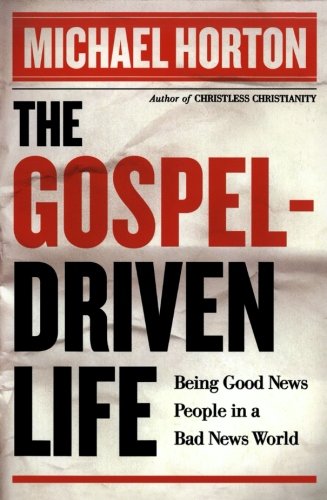‘Meant to Be’ Explores Half a Good Message
I may have been one of the first people to see the PureFlix movie Meant To Be. A few years ago, while attending a certain writer’s conference, there was a screening for the film one evening, and if I remember it right, it was before it was released to discs.
Summary
Nathan Burr is a young aspiring writer. He’s lost his job and his girlfriend. He’s a foster child, and so with some time on his hands, he travels to where he thinks he as born, in order to get information about his birth mother, and maybe even meet her.
With a bit of help, he thinks he’s found her, but what happens when he meets her badly unsettles him. Then he realizes that the truth about his mother, himself, and even his own existence is far different, and far more disturbing, than he’d ever had a clue about.
The story is actually fairly intricate. It involves not just Nathan and his mother, but also a high school girl named Tori, who’s found herself in a bad situation, one that relates to Nathan’s mother, a social worker who is trying to help Tori, and to Nathan himself.
The mostly good part
I have to give this movie a good amount of credit for both having a good story idea, and for executing it fairly well. If nothing else, if someone ever asks you for a “Christian ghost story,” you can point them to this movie. And the fact that they can use a “Christian ghost story” in the cause of a pro-life message is all the better. I suppose it could be considered “heavy-handed” or “preachy”, but I’m fine with that.
But there are some things in the story that the nitpicky part of me has some trouble with.
How, for example, did Nathan “live” for something like 20 years, and not realize the strange things happening around him, such as the people not noticing him? How did he get his prominently featured laptop? How are he and the girl he’s met able to travel around a city in her car, and not realize that the other drivers are not just not seeing them, but apparently also driving right through them, since of course they aren’t really there, they don’t really exist; they’ve been dead since before they were even born? How did he even have a job and a girlfriend to lose? Who were these foster parents who raised him, and how did he even end up a foster care system? The in-story notion that he only interacts with people who suffered the same fate he did may answer a few of these concerns. But it also falls apart really quick.
But there are other, more serious issues, too.
Nathan wants to be a writer, and a few times, Nathan acts like a kind of narrator for parts of the story, as if he were himself telling the story. In a couple of those times, he claims that he’s heard “a still small voice inside of me” that tells him to “write what you don’t know.” To try to be nice about my opinion of this phrase, I can only consider it an inspiration fail, a bit of nonsense trying to pose as profound.
When Mave explains to Nathan the significance of the room with all the photos, the room of perfect plans (it wasn’t capitalized in the subtitles), we are left with the idea that all the people in the photos, people whose lives had been ended by abortion, would have had nice, ideal lives. I find that hard to accept. I find it hard, even impossible, to believe that among those people would not be liars, murderers, thieves, people who would break marriage vows, cult members, drug addicts and drug pushers. In other words, humans—fallen, sinful, enemies of God who need to repent and believe in Christ and his sacrificial death for their sins.
Abortion is murder. It is evil. We do not need to create idyllic futures for victims of abortion in order to say that it is wrong, and when we do those types of things, it comes off more like a case based on fantasy rather than one based on morality.
Christian stories
What is it that makes a movie or a book a Christian story? Is it having a message based around biblical morality? Is it having an angelic character? Is it quoting the Bible, or referring to things said in the Bible? Is it talking about God a lot?
On the one hand, I’m reluctant to say that a Christian story needs certain elements in it to be considered a Christian story. If I were to say “A Christian story needs X in it, or else!”, I’ve little doubt we could find several examples of Christian stories that don’t have X.
On the other hand, I’ve read and seen some stories that have been labeled as Christian that have had some questionable stuff in them, or get wishy-washy when it comes to certain biblical matters.
 In trying to evaluate the Christian message of Meant To Be, I’d like to start with this statement:
In trying to evaluate the Christian message of Meant To Be, I’d like to start with this statement:
In the 1950s, Yale’s H. Richard Niebuhr described the so-called “gospel” of Protestant liberalism poignantly: “A God without wrath brought men without sin into a kingdom without judgment through the ministrations of a Christ without a cross.” Each clause is telling. First, more like Mr. Rogers than the judge of all the earth, the sentimental deity of many Americans is incapable of wrath. Since he exists for us and our happiness, this heavenly friend may be disappointed and sad when we hurt ourselves, but he never sees sin as an offence primarily against himself and his perfect justice. Second, we may make mistakes—pretty bad ones, from time to time—but it would be wrong to call ourselves sinners, much less to imagine that we were captive to sin, helpless to do anything to will or work our way out of the mess. So, third, God brings us basically good people into a kingdom without judgment, since there is no law that could condemn and no gospel that could justify. And finally, for this sort of religious therapy you don’t need a vicarious, atoning sacrifice if you are basically a nice person; what you really need is a good example.1
It should be noted that God’s forgiveness is mentioned a couple of times in this movie. But Linda’s husband tells her she needs to forgive herself, and Linda tells Tori she will not easily or quickly be able to forgive herself if she gets the abortion. The film’s key idea isn’t receiving God’s forgiveness, but forgiving themselves.
When Mave tells Nathan about why his mother aborted him, she says that his mother “made a mistake.” She tells him that God has a purpose for our lives, “but sometimes we deviate from that because each of us has choice.” What do we gain by calling sin simply a mistake? Rather, what have we lost by downplaying the serious of our actions? If we make mistakes instead of commit sins, then how seriously bad are we?
Because notably absent from this movie is any mention of Jesus and the gospel. God’s forgiveness is mentioned, yes, but it is shunted aside very quickly, as if it’s something that has no bearing on the Linda’s continued guilty feelings or Tori’s desire to kill her unborn child because to continue carrying the child would ruin her plans. But this cheapens the most important issue of all—that we have sinned against God, and God would be right to judge us for that, but God has made a way for us to be made clean from that sin, His only Son Jesus died so that real-life people can be forgiven for real-life sins. If we cannot, if even Christians cannot, acknowledge our universal disease, if we cannot face the truth about ourselves as individuals and as humanity as a whole, then how can we hope to offer the real cure to this disease? Instead of the good news that the disease has a cure, all we would have, all this movie has, is good advice that offers, and fails, to keep the symptoms at bay.
This is the most frustrating part about this movie. What is a good story about the value of life could have been so much better if it had been as strong with the message of the gospel as it was with its pro-life message.
Conclusion
It saddens me that I cannot give Meant To Be more than a rather half-hearted recommendation. But that really is all I can give it, because that is all it deserves. It’s not a complete waste, but it simply drops the ball on the most important issues.
- Horton, Michael. The Gospel-Driven Life: Being Good News People in a Bad News World (p. 38). Baker Publishing Group. Kindle Edition. ↩




































